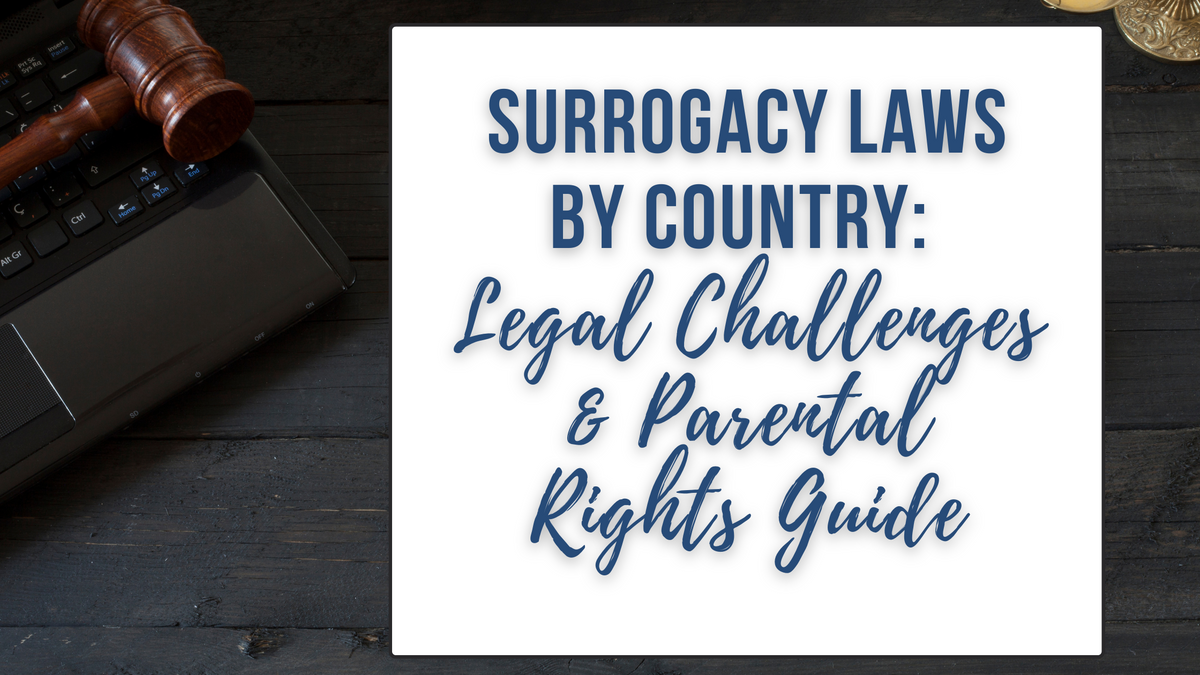Navigating the legal landscape of surrogacy can be complex, as regulations vary significantly across different jurisdictions. Understanding these legal challenges is crucial for intended parents and surrogates to ensure a smooth and compliant surrogacy journey.
(This blog is not intended for legal advice. Please consult with a qualified surrogacy attorney for legal advice.)
TAKE THE SURROGACY QUIZ >>>>> CHAT WITH A SURROGATE
Variations in Surrogacy Laws
Surrogacy laws differ widely around the world, with some countries permitting the practice under specific conditions, while others impose strict bans. For instance, commercial surrogacy is prohibited in Canada and most of Europe, whereas countries like the United States, Ukraine, Russia, and Georgia have more permissive laws, allowing commercial surrogacy, including for foreigners.
In Australia, altruistic surrogacy is allowed under certain conditions that vary between states. However, commercial surrogacy is illegal nationwide, leading some individuals to seek surrogacy services overseas.
Challenges in International Surrogacy
Engaging in international surrogacy introduces additional legal complexities, particularly concerning citizenship and parental rights. Intended parents may face difficulties in establishing legal parentage and securing citizenship for their child, depending on their home country’s laws and those of the surrogate’s country. For example, a UK couple who pursued surrogacy in Cyprus found themselves unable to return home with their newborn twins due to legal and bureaucratic hurdles.
TAKE THE SURROGACY QUIZ >>>>> CHAT WITH A SURROGATE
Recent Legal Developments
Several countries have recently amended their surrogacy laws, impacting both domestic and international arrangements. Italy expanded its ban on surrogacy to include citizens seeking surrogacy services abroad, imposing penalties of up to two years in jail and fines up to 1 million euros. Critics argue that this law disproportionately affects same-sex couples, who already face barriers to adoption and parental rights in Italy.
Recommendations for Intended Parents
Given the complex and varying legal frameworks surrounding surrogacy, intended parents are advised to:
• Conduct Thorough Research: Understand the surrogacy laws in both your home country and the country where the surrogacy will take place.
• Seek Legal Counsel: Consult with legal professionals experienced in surrogacy and family law to navigate the legal requirements and protect your rights.
• Consider Ethical Implications: Beyond legalities, reflect on the ethical aspects of surrogacy arrangements, ensuring that the process respects the rights and well-being of all parties involved.
TAKE THE SURROGACY QUIZ >>>>> CHAT WITH A SURROGATE
By staying informed and seeking appropriate guidance, intended parents can better navigate the legal challenges of surrogacy across different jurisdictions, paving the way for a successful and legally sound surrogacy journey.
Follow Surrogacy Mentor on Instagram , Facebook, YouTube and TikTok!

